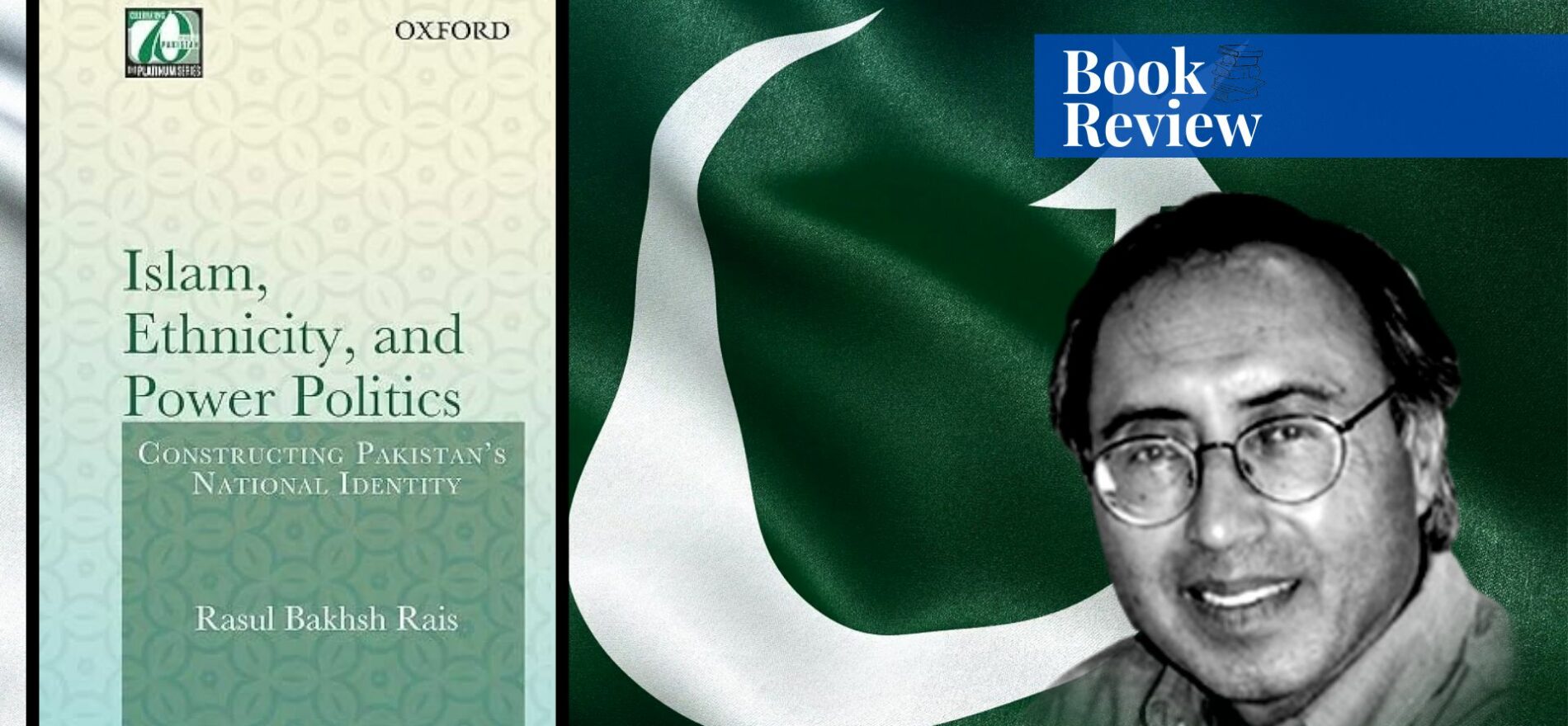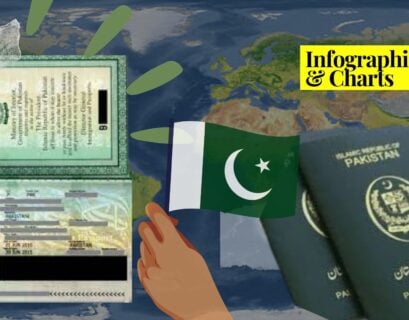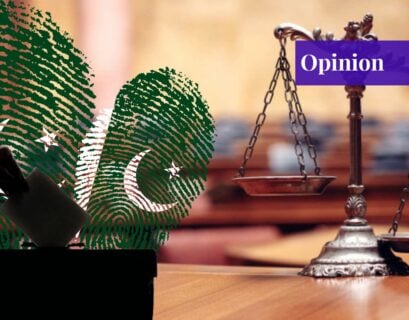Ms Seher Intikhab is a student of BS Political Science at Quaid-i-Azam University Islamabad.
The defining idea of Islam, Ethnicity, and Power Politics: Constructing Pakistan’s National Identity by Rasul Bakhsh Rais is that the problem of Pakistan is not one of cultural diversity. Rather, this cultural diversity can be made to evolve into national solidarity through an efficient pluralistic political framework of equality, accommodation, inclusiveness, recognition, and rights.
The Politics of Identity
In the first chapter, Rasul Bakhsh Rais makes an argument on how identity construction which is directly associated with the question of power is shaped by ethnic groups, social forces, political elites, and religious factions.
The history of Pakistan is evident that only Islam could be used as a convenient force on which national solidarity or unity is sought to be formed, but not a sufficient one when it comes to the multi-ethnic society that is Pakistan. Rais argues that identity formation is a dynamic process which means it is subjected to change and social groups that once endorsed the national narrative of identity.
Security Structure and Identity
This chapter focused on the security structure of Pakistan in broader terms. Not only the military, which is usually referred to as the security establishment, but also other elements of security structure such as threat perceptions and enemy debates, security and foreign policy, and the role of nuclear weapons and strategic culture in shaping identity construction were discussed.
State, Nation-building, and Identity
The author argues that the nation-state is a universal political construct that all political communities embrace for establishing social order and forging social cohesion by integrating diverse ethnic groups into a nation. He highlighted the debate about whether it was the force of nationalism that gave birth to India and Pakistan or colonial fatigue.
State-building has never been an effortless process in developing countries like Pakistan. Islam and Muslim nationalism are the basic core ideas of being a state according to central elites and religious factions. He argued that it is partly the political use of Islam by secular elites that has allowed Islamists to set the agenda of Islamic politics.
Ethnicity, Nationalism, and Identity
The author expresses the view that Pakistan is one of the most complex multi-ethnic societies and the root of trouble for the Pakistani state is not ethnic diversity, proliferation of ethnic groups, or migration but lack of development of institutional architecture and political institutions to manage this diversity. Rais further discusses Punjab and Punjabi Nationalism, Pashtun integration, Baloch fear and nationalism, and ethnic polarization in Sindh.
Political Islam and National Identity
This chapter highlights that political Islam has been and may continue to remain of utmost importance in the reconstruction of post-colonial states and societies in Muslim-majority areas. The primary objective of those associated with political Islam is to transform the constitution, laws, policies, and social practices in accordance with Islamic principles.
Culture and Cultural Politics
This highlights the importance of culture in shaping the identity of a nation or state, and it acts as a marker of difference among nations. Among many challenges that Pakistan confronted as a new state constituted out of linguistically diverse Muslim majority areas, were the twin issues of identity and national culture.
Pakistani culture must be conceived as diverse and inclusive of multiple art traditions, folk heritage, and native languages. Rais maintains that while Islam is the foundation and cornerstone of Pakistani culture, we must not use it to suppress or restrain other influences.
Reviewer’s Comments
Islam, Ethnicity, and Power Politics tackles important themes and issues with sensitivity and insight leaving an impact on the perspective of the reader. The author’s arguments were supported by evidence which proved its accuracy. Rasul Bakhsh Rais has done justice in exploring the relationship between Islam, ethnicity, and power politics. However, the thing that I disliked about the book was the repetition of concepts both in the first and third chapters such as the role of Islam and identity politics.
As the author has tried to deal with a multiplicity of themes, there are some themes that deserved more explanation but were not given due attention. Overall, the writer has done a brilliant job explaining power dynamics in relation to identity construction.
If you want to submit your articles, research papers, and book reviews, please check the Submissions page.The views and opinions expressed in this book review are the author’s own and do not necessarily reflect the editorial position of Paradigm Shift.



















